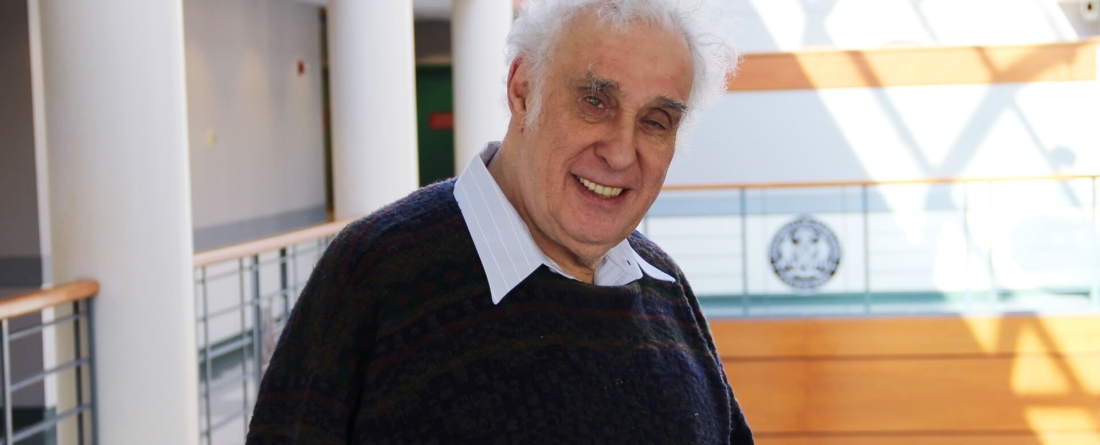
In 1981, the University of Maryland School of Public Policy was established with less than 10 faculty members, including Distinguished University Professor Allen Schick. Through changing locations and changing faces of staff and faculty, the one constant factor during Schick’s 35 years at the School of Public Policy is his love of teaching and working with students.
“I love to teach,” Schick says. “Outside the classroom I feel my age, 81, but inside the classroom I feel like the youngest kid in the room. It has that effect on me.”
Prior to coming to the School, Schick started teaching in 1961 at Tufts University. His teaching experience has spanned 55 years and his background includes jobs with the Brookings Institution, the Congressional Research Service, as well as work in 45 of the 50 US states and more than 50 countries.
“I specialized for many years in government finance and budgeting,” he says. “That interest was sparked by a course I took in graduate school. I did my dissertation on budgeting and that’s the area in which I specialized the most. Budgeting took me to public policy generally, to government institutions and most recently to developing countries. I mentioned that I have worked in more than 50 countries, most of them are developing countries. To do good work there you have to know the country, what’s holding back its development and what opportunities they have. So I have become sort of an amateur expert on developing countries.”
I enjoy students. I enjoy meeting with them. I enjoy teaching them. I enjoy sitting at the table with students who have submitted a draft of a paper and working through how to improve it and then seeing the student come back a few weeks later with a revised version of the paper that just soars.Allen Schick Professor
Schick’s recent courses at the School have directly related to his experience with developing countries. “I taught a course in the fall called ‘Pathways to Development,’ which tries to examine what are the factors and conditions and constraints which explain why some countries develop and other countries don’t,” he says. “The plural ‘pathways’ indicates that there’s not one explanation, but that there are many explanations and we go through them in class."
After such a long career, Schick says it’s his love and passion for teaching that keeps him going and keeps him coming back year after year. “I enjoy students. I enjoy meeting with them. I enjoy teaching them. I enjoy sitting at the table with students who have submitted a draft of a paper and working through how to improve it and then seeing the student come back a few weeks later with a revised version of the paper that just soars,” he says. “I love the teaching part. In fact, I’ve come to realize late in my career that most of my writings are also a form of teaching. They’re trying to explain something to somebody else; that’s only teaching through a different medium.”
With a wife of 58 years, five children, 17 grandchildren and three great-grandchildren, Schick’s life outside of the School is full as well. Through his busy personal life and work life, he still makes time to nurture and maintain relationships with his current students and former students.
“To tell you the truth, you maintain relationships with a relatively small number of alums, and even with a relatively small number of students,” he says. “You’ve got to nurse those relationships. It’s like with all relationships, they wither if you don’t do anything to keep them going.”
Schick admits that after his long tenure with the School, thoughts of retirement creep in every now and then. “It’s been a good ride,” he says. “I’m right now at the point of having to decide whether to return to teach next year or say this is it. I have moments thinking both ways. However, I am encouraged by the initiatives and the ambition of Dean Orr. I think we have the opportunity for an active, vigorous, successful leadership and I kind of want to be part of it. So if you had to ask me right now if this will be my last year, the answer is probably no.”
“All good things come to an end, but who knows when?” he adds. “I tell myself that as long as I enjoy teaching, as long as I don’t see the classroom simply as an obligation, but something that engages and excites me, then that’s where I want to be.”
